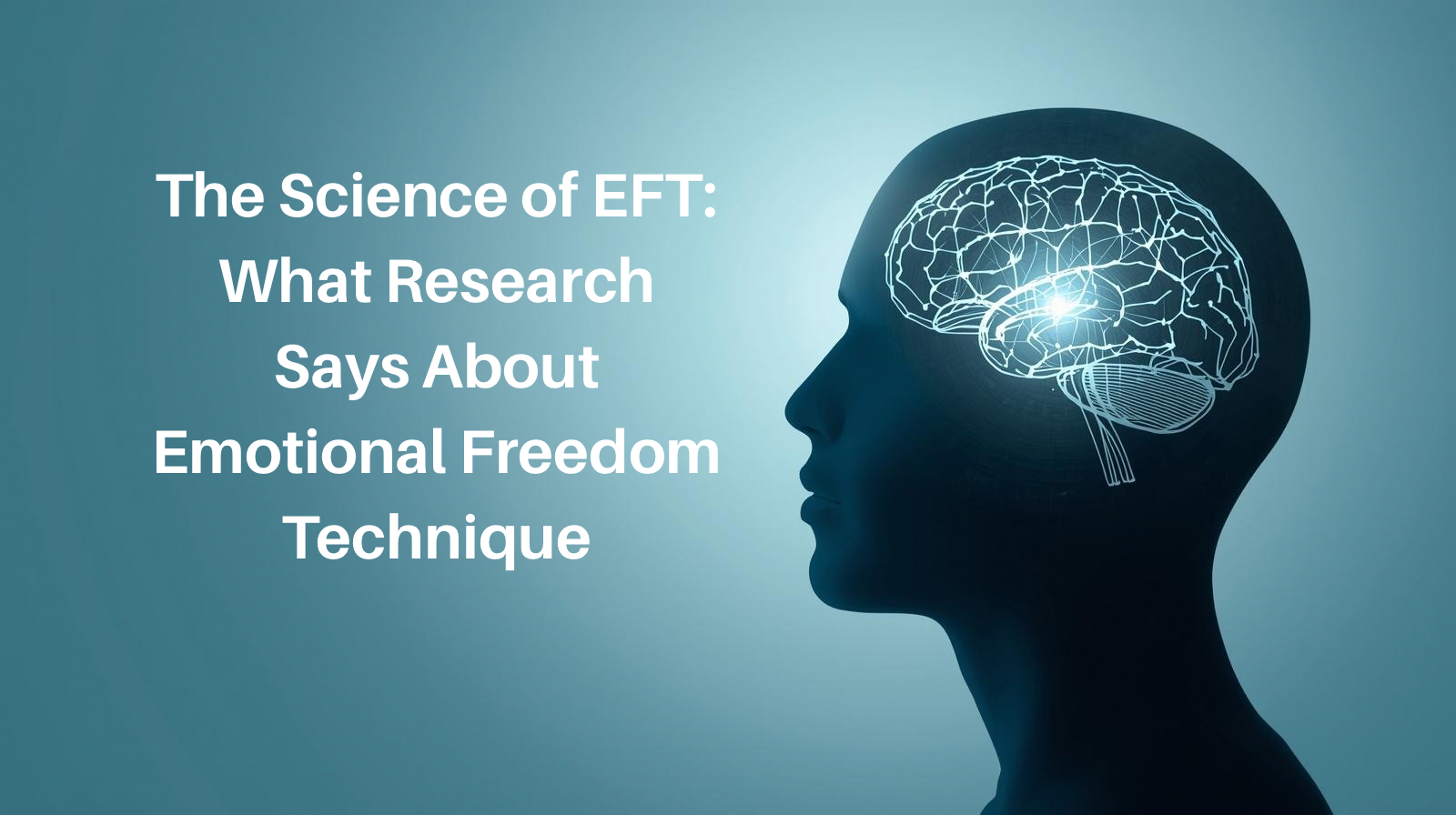Emotional Freedom Technique (EFT), also called tapping, is often described as a simple self-help tool — but you may be wondering: Is EFT really backed by science? The short answer is yes. Over the past two decades, a growing body of EFT tapping research has shown that this practice can lower stress hormones, reduce anxiety and depression, and support trauma recovery.
In this article, we’ll explore the science behind EFT, highlight key studies, and show you why tapping is gaining recognition as more than just an “alternative” practice.
🔑 Table of Contents
🧠 How EFT Affects the Body and Mind
EFT combines gentle tapping on acupressure points with mindful awareness of emotions. Research suggests this process:
- Regulates the stress response by calming the amygdala (the brain’s fear center).
- Lowers cortisol, the body’s primary stress hormone.
- Balances brain activity, shifting from fight-or-flight into a calmer, more grounded state.
- Promotes emotional regulation by pairing awareness with physical calming signals.
This mind-body interaction explains why many people feel relief so quickly — sometimes within minutes.
📊 Key EFT Tapping Research Findings
1. Cortisol Reduction
A 2012 study published in the Journal of Nervous and Mental Disease found that participants who used EFT had a 24% reduction in cortisol levels after a single session, compared to just 14% in talk therapy and no change in a control group.
2. Anxiety, Depression, and PTSD
Multiple randomized controlled trials (RCTs) have shown EFT’s effectiveness for anxiety and depression. In fact, a meta-analysis in Explore: The Journal of Science and Healing concluded that EFT significantly reduces both anxiety and depression symptoms.
EFT has also been studied in trauma recovery. Veterans with PTSD who received EFT sessions experienced significant decreases in symptoms, with many no longer meeting diagnostic criteria for PTSD after treatment.
3. Pain and Physical Health
EFT has been used in studies on chronic pain, headaches, and fibromyalgia. Results often show decreases in both physical discomfort and the emotional distress associated with pain.
4. Lasting Results
Unlike some quick-fix techniques, research indicates that EFT benefits are maintained over time. Follow-up studies show participants reporting sustained reductions in stress, anxiety, and trauma symptoms months after their sessions.
🧾 Why EFT Is Being Taken Seriously
EFT is increasingly being recognized as an evidence-based approach:
- It is listed in the U.S. Veterans Affairs’ Evidence-Based Practice registry.
- The American Psychological Association (APA) has acknowledged its research base, while noting more large-scale studies are needed.
- Practitioners worldwide use EFT alongside therapy, coaching, and medical care as a complementary tool.
What was once considered “alternative” is now moving into mainstream integrative health.
Want the full guide? Read The Complete Guide to EFT Tapping
🎧 Try EFT for Yourself
Reading about research is helpful — but the best way to understand EFT is to experience it.
That’s why I created a Free 5-Minute EFT Tapping Reset for Stress & Anxiety. It’s a short, guided session designed for beginners that will help you feel the calming effects of EFT in just minutes.
👉 Click here to register and get instant access to your free EFT tapping session
🎓 Go Deeper: Become a Certified EFT Practitioner
If you’re inspired by the science of EFT and want to share it with others, consider becoming a certified practitioner.
The EFT Practitioner Certification Course is a self-paced program that teaches you how to:
- Lead EFT sessions with confidence
- Support clients through stress, anxiety, and trauma
- Build a fulfilling practice using a proven, research-backed technique
It’s not just about learning EFT — it’s about making it part of your life and work.
❓ FAQs About EFT Tapping Research
Yes. Dozens of peer-reviewed studies and meta-analyses support EFT as effective for reducing stress, anxiety, depression, and PTSD.
EFT is considered a complementary practice. While not yet fully mainstream, its evidence base is growing, and it is increasingly integrated into clinical and coaching settings.
Research comparing EFT to control groups (including supportive talk) shows significantly greater outcomes, suggesting its effects are more than placebo.
Over 100 peer-reviewed studies have been published, with dozens of randomized controlled trials — the gold standard in research.
Yes. EFT has been studied extensively with veterans and trauma survivors, with many showing dramatic improvements in PTSD symptoms. It should be used as a complement to professional care, not a replacement.
🌟 Testimonials
“As someone who trusts science, I was surprised by how much research there is behind EFT. After trying it, I felt the results immediately.”
— Mark H.
“I’ve struggled with anxiety for years. Knowing EFT has real studies behind it gave me the confidence to try. It’s now part of my daily life.”
— Katrina S.
“I’m a coach and wanted something evidence-based for my clients. EFT has exceeded my expectations — both in research and in practice.”
— Jonathan D.
✨ Final Thoughts
The science of EFT is clear: this simple, accessible practice has measurable effects on stress, anxiety, and emotional regulation. While more research is always welcome, the studies we have today show that tapping is more than just a wellness trend — it’s a powerful, evidence-supported tool.
👉 Start today by experiencing EFT for yourself with the Free 5-Minute EFT Tapping Session.
And if you’re ready to take the next step, explore the EFT Practitioner Certification Course to turn this research-backed practice into your personal or professional path.
Related Reading About EFT
EFT Tapping Success Stories | Real Experiences of Stress and Anxiety Relief
EFT vs Meditation | Which Works Better for Stress and Anxiety?
Can You Really Make a Living as an EFT Practitioner?
EFT Tapping for Stress Relief | Fast Techniques for Everyday Stress
EFT Tapping for Anxiety | How to Use Emotional Freedom Technique to Feel Calm
EFT Tapping Points Chart | Step-by-Step Guide for Beginners
What Is EFT Tapping? The Complete Beginner’s Guide to Emotional Freedom Technique



Add your first comment to this post
You must be logged in to post a comment.